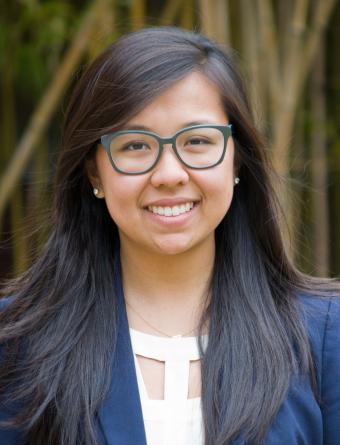“It seems like every synthesis has its problems,” Le said. “I’d expect to make five compounds in one week, but then I run into problems and it ends up taking me the entire week to successfully make just one compound. I’d heard from a professor that however long you think it will take you to finish an experiment, increase the increment of time and add a few.”
That’s what makes summer such a great time for student research. While Le has been working in the lab of Jason Sello, associate professor of chemistry, since the fall of 2014 to build a library of chemical “fragments” to fight tuberculosis, she’s never had more time than now for the intensive, frustrating, and fully worthwhile work that requires.
“This was a project that I had been working on for some time now, but with the business of the semester, I didn't get as much accomplished as I wanted to,” said Le, who is from West Palm Beach, Fla. “Summer was an opportunity for me to really dedicate all my time and focus toward driving this project forward and getting results.”
The compounds she’s been spending about 35 hours a week making and purifying are called cyclic acyldepsipeptides (ADEPs) fragments. Their job is to sneak into cells of Mycobacterium tuberculosis and to bind to a mechanism that breaks down unwanted proteins to maintain the bacterium’s health. Sello’s research has shown that this bit of subterfuge can disrupt that mechanism, thereby killing harmful bacteria that are resistant to conventional drugs.
Now the lab is looking for the most effective ADEP fragments against tuberculosis. Le is helping to make candidate ADEPs for testing.
“It’s exciting to see the results of the biological assays on the compounds,” she said. “Sometimes we don’t get any improved activity from the compound, but sometimes we do and it’ll give us a new direction to explore.”
But Le has found that even when things don’t work out with an experiment, there is still much to be gained.
“This experience has taught me to be adaptive and creative, and I think that is applicable to any problem that I become discouraged with,” she said.
She has been working in an environment where people have stuck together through the bad moments and the good.
“I’ve really enjoyed my time spent of summer research,” Le said. “Professor Sello has been really supportive and helpful and my labmates make even the worst days, when none of my reactions or experiments seem to be working, fun.”

